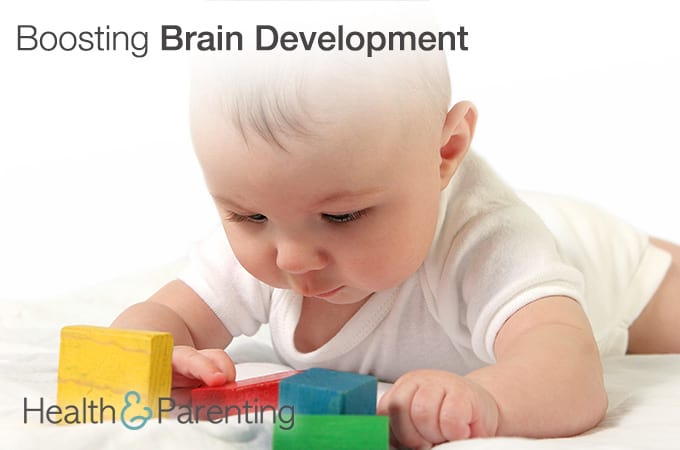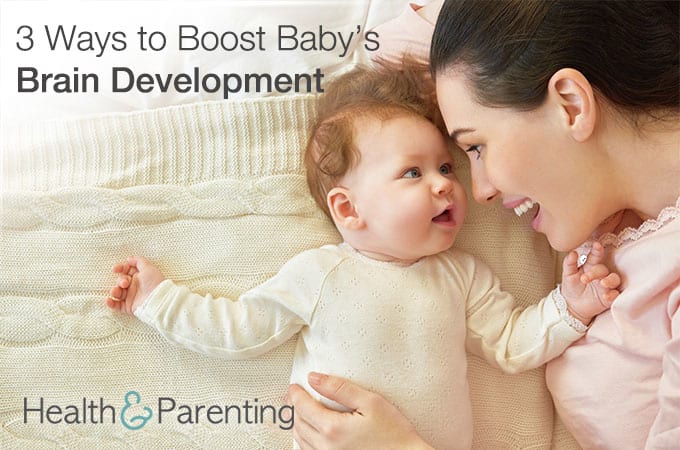Have you noticed your baby staring at the cat as it darts across the room? Or watching intently as you push a vacuum across the carpet or slide a toy car from one place to another? At this age, babies love to watch that movement, and they are especially interested in the path certain objects take to get from point A to point B. It’s that trajectory they are curious about, and helping them to explore that curiosity can be a great way to boost their brain development at this age!
Following your baby’s interest in movement, seek out toys and household items that will allow for rolling or pulling across the floor. There are plenty of baby toys made with this exact activity in mind, but paper towel rolls and rolling pins can also pique your little ones interest.
Get down on the floor with your baby, either in a sitting position (if your baby is sitting up yet, or if you have some pillows that can be used for comfort and support) or in a tummy time position. Then, roll objects across the floor. If possible, get your partner in on the action so that he or she can roll things back. Watch how your baby’s eyes track those items, and talk about what you’re doing as you do it.
Once your baby seems to understand the way the object moves, try rolling it gently his or her way. They will probably try to pick it up, and will likely attempt to put it in their mouth—so make sure to only use items that wouldn’t be dangerous for your baby to taste test!
Another great way to help your baby test this movement and the trajectory of certain items is to get a tube of some sort that you can roll balls or trucks through. Toys that can be pulled and will roll behind you are also great. And maybe try to utilize your partner in another room, out of sight of your baby, so that you can roll items away and laugh gleefully as they come back. Try alternating the items you roll, so that as one disappears, another returns. Does your baby notice? Talk to him or her about the difference, and be animated in the game as you continue to engage your little one.
With time, your baby may start to roll items back to you—though that likely won’t happen anytime soon. So for now, just enjoy watching your little one learn and grow through their understanding of movement. They’ll be the ones on the move themselves before long!
Written by Leah Campbell, infertility advocate, adoptive mama, writer and editor. Find me @sifinalaska on Twitter.
This information is not intended to replace the advice of a trained medical doctor. Health & Parenting Ltd disclaims any liability for the decisions you make based on this information, which is provided to you on a general informational basis only and not as a substitute for personalized medical advice. All contents copyright Health & Parenting Ltd 2016. All rights reserved.











